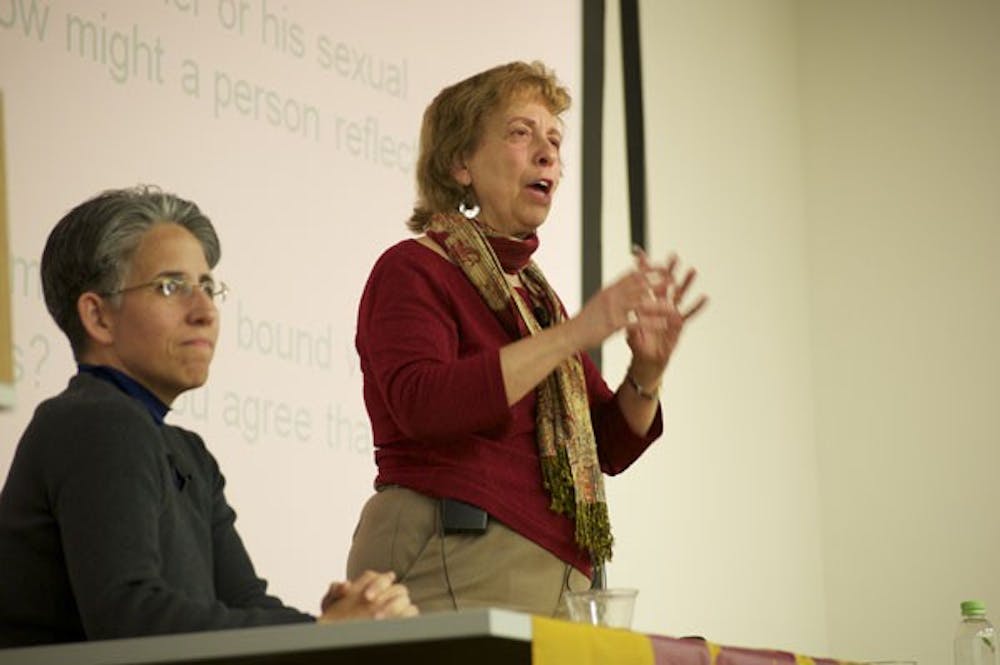Sexuality is generally a taboo topic in public, but a discussion at ASU’s Downtown campus threw that concept out the window.
More than 100 students, faculty and community members attended “Sexuality: Kaleidoscopic Perspectives,” part of the 2010 Humanities Lecture Series, to hear two ASU professors discuss their perspectives of sexuality and how it is connected to issues of morality, values and ethics.
Panelist Grace Galliano, a social psychology faculty associate, has taught human sexuality classes in the past.
When it comes to sexuality, Galliano said she holds the view of Alfred Kinsey, a zoologist who had an interest in sexual behavior, on sexuality among college students.
“We are all different and we are all the same in some ways,” she said. “I’m intrigued with both aspects of that.”
Galliano said she would define sexuality as a social behavior.
“By doing something sexual, we’re expressing something; something about ourselves to another person or to ourselves,” she said.
There should be no lingering belief that sex is mainly for reproduction, she said, because that is not the case anymore.
“Reproductive sex is the least common thing that people do sexually,” Galliano said.
Another point she discussed was that people tend to focus on what others are doing sexually so that they feel normal.
“I would opt for us to spend more time reflecting on ourselves and what works for us,” Galliano said.
When an audience member brought up the topic of religion, Galliano said that several religions are more about what people shouldn’t do sexually.
“It seems to me that religion often provides a whole list of ‘No’s,’” she said.
Panelist Jacqueline Martinez, a communications associate professor, said her view of sexuality is that it is a fundamentally good social experience.
“We live in a culture where that doesn’t necessarily always come through,” she said.
Martinez said it seems that morality is tightly bound with sexuality, even if it is a pseudo-morality that is more focused on sex as a way to gain power over someone.
“Once someone in the workplace says you harassed me sexually, everything changes,” she said.
Martinez commented on the fact that people may have lustful thoughts but shouldn’t necessarily act on them. However, denial isn’t really an option either.
“To try to deny that we have the thoughts doesn’t get us anywhere,” Martinez said. “Pretty much all of us … we can’t help but have desires here and there.”
Janice Dunlap, an office specialist at ASU, said she attends a lot of ASU events because she likes hearing new ideas and learning.
What interested her in this event were the different perspectives of the professors, she said.
“When I think of sexuality, I think solely in terms of experience,” Dunlap said. “It kind of tells me that my knowledge of the subject might be kind of limited.”
Mirna Lattouf, coordinator for the lecture series, said the series promotes the humanities and is used as a community outreach opportunity.
The topic is possibly controversial but is beneficial for the public to talk about, she said.
“I think it’s a very timely one in that the two faculty are … discussing issues of sexuality connected with morality, and that is a topic that is ongoing in society,” Lattouf said.
Reach the reporter at reweaver@asu.edu





